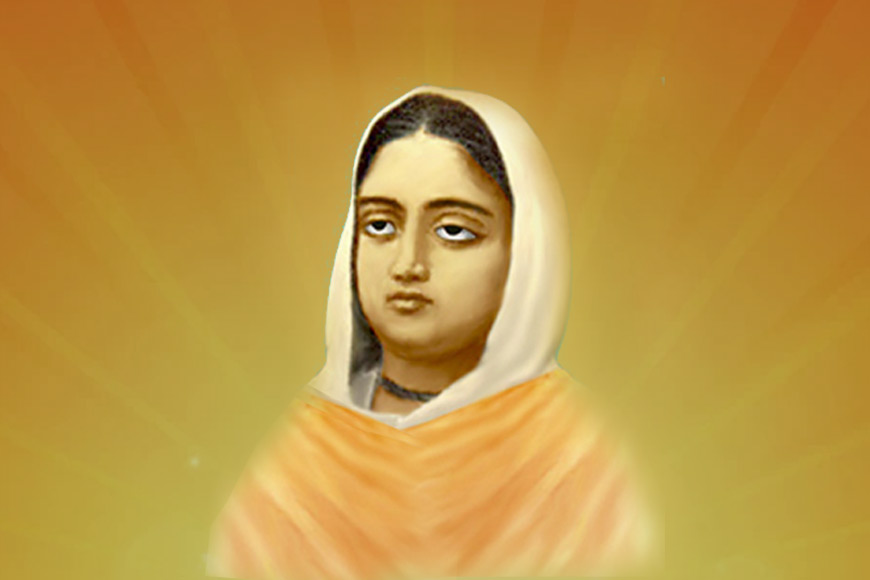The Real Rani -- Rani Rashmoni, one of the first female entrepreneurs of India

We often talk of Rani Rashmoni as the philanthropist linked to Dakshineshwar Temple. But how many of us speak of her business acumen and how she led a business empire annihilating the aspirations of the British traders? GB brings you this 4-part series on The Real Rani -- Rani Rashmoni’s entrepreneurship skills
The concept of ‘women entrepreneurs’ was alien to Indians even a few decades ago. A woman’s role was limited to family; she was meant to play an effective role as a homemaker. Anything beyond that was seen with skepticism and suspicion. However, the winds of change have finally arrived, albeit a little late. Welcome to modern-day India – a growing hub of opportunities waiting to be grabbed, a diverse mishmash of industries in the metropolitans, an open stage for all genders to take control of, and a marginally more open-minded community that welcomes change (for good). It has been (and still is), however, a struggle for a majority of women to break the shackles to aim big, take the plunge, and realize their dreams.
‘Lokmata (Mother of the masses), Karunamoyee (Compassionate)’ Rani Rashmoni appeared like a meteor. She came, she saw and she conquered. An extraordinary woman, Rashmoni was renowned for her untamed zeal, her keen business acumen, and her fight against the aggression of the British East India Company in 19th century Bengal
Compare this situation to 19th century Calcutta, then the bastion of the British Empire in India. The British wanted to make Calcutta the London of the East for the burgeoning European population and as the nerve center of their growing Indian empire. The city was grand, opulent, and regal, the showpiece of the grandeur of the empire. It was a place where the colonial and the vernacular were juxtaposed in the most unusual settings. During the 19th century, women of upper caste households in Bengal used to live behind the ‘purdah’ or the veil. They would even travel in palanquins covered on all sides so that their faces could not be seen by any male member outside. This was a time when most girls were married off young before they attained puberty. Then, when they were physically ready to bear children, they were conditioned to think of nothing but motherhood.
With several girls being married off to much older men, widowhood followed close on the heels of the wedding, resulting in ostracism and confinement in pooja rooms or to the land of Kashi (Varanasi). Widows were not supposed to participate in weddings or other auspicious ceremonies. They were not allowed to play with children of their age and had to wear white. Having been denied an education, they were left at the mercy of their in-laws and often had to deal with grasping relatives who dispossessed them of any property they may have inherited.
Also read : Why did Lord Bentinck praise Rani Rashmoni?
Women were meant to be looked at, to be enjoyed. Oblique references to “the shastras” were conveniently made, because how many actually knew them to refute them? Women thought and spoke of themselves as weak, powerless creatures, forever dependent on a man’s mercy. A wife accepted her husband’s desire for a mistress as a matter of course. She kept house, bore children, and sometimes helped arrange dalliances. The mistress was powerful as long as she had patrons but made no attempt to mingle with the noble. The lines were clearly drawn and only men were permitted to straddle both the sides.
Amid such a backdrop, ‘Lokmata (Mother of the masses), Karunamoyee (Compassionate)’ Rani Rashmoni appeared like a meteor. She came, she saw and she conquered. An extraordinary woman, Rashmoni was renowned for her untamed zeal, her keen business acumen, and her fight against the aggression of the British East India Company in 19th century Bengal. She was an intelligent, brave, spirited, deeply-spiritual, and liberal-minded woman who put up a lone battle against the orthodox, patriarchal Hindu society.
Rani Rashmoni as the philanthropist linked to Dakshineshwar Temple. But how many of us speak of her business acumen and how she led a business empire annihilating the aspirations of the British traders?
Rani Rashmoni’s name is synonymous with the Dakshineshwar Kali Temple. At a time when the ‘purdah’ system was very much in vogue, Rani Rashmoni had the mettle to defy societal dogma and raise her voice against the prevailing social evils of the time — first, to fight against rampant social ills like polygamy, child marriage, and sati; and second, to support trailblazing social reformers like Ishwar Chandra Vidyasagar, even submitting a draft bill against polygamy to the East India Company.
(To be continued)
Source: Rani Rashmoni – Ek Mohiyoshi Nari











